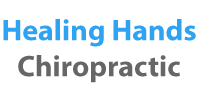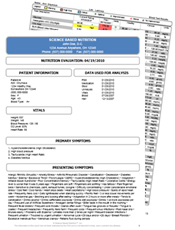What is CoQ10?
Coenzyme Q10 (CoQ10) is a naturally occurring substance required by all the cells of the body with particularly high concentrations in the heart and liver. CoQ10, also known as Ubiquinone, is a necessary component of cell respiration and ATP production (the energy on which the body runs). Its role is quite profound, given that 95% of all energy used in the body is produced by the mitochondria. Ubiquinone is a fat-soluble substance used to form ubiquinol, the fully reduced form of Ubiquinone and potent antioxidant. Most CoQ10 is formed in the body through a 17-step process that utilizes certain vitamins and minerals. However, good food sources are fish and meats. Although CoQ10 (Ubiquinone) has been sold for quite some time as a supplement, ubiquinol has more recently hit the market. This active antioxidant form is thought to be more important for older individuals, or anyone who may be experiencing greater levels of oxidative stress or physical stress, or individuals who appear not to respond to regular CoQ10 supplementation (possibly due to poor conversion of CoQ10 to ubiquinol in the body)…more on this later.
What causes deficiency?
You may be asking, “If CoQ10 is synthesized in our bodies, how can deficiency occur?”. The levels of CoQ10 in the body can fluctuate depending on many factors. There are three main reasons for this:
#1 Insufficient diet. An important factor in total blood and tissue levels of CoQ10 is dietary intake. If we do not consume enough from our food, the body must make up the difference. In addition, biosynthesis of CoQ10 is a complex 17-step process involving Vitamin C and many B vitamins including pantothenic acid. As indicated earlier, fish and meat are good sources of CoQ10 as well as certain b-vitamins. Those with poor digestion, vegans/vegetarians or those on a protein restricted diet are at risk for deficiency. If your diet is deficient in these foods and/or nutrients, it makes CoQ10 synthesis virtually impossible. On the standard American diet (low fruit/vegetable intake, poor quality protein, high carbohydrate), you simply do not get nearly enough CoQ10 or the other vitamins necessary for optimal synthesis.
#2 Impairment of CoQ10 biosynthesis. This is linked to #1 but there are other biological reasons for inadequate production of CoQ10. Certain physiological conditions and chronic diseases can cause a failure in production. The treatments of diseases can also be a factor. For example, CoQ10 is formed through the same pathway as cholesterol. As a result, the use of statin drugs (cholesterol lowering drugs) severely depletes CoQ10 levels in the body. The catch-22 is, in treating heart disease we use drugs that deplete natural compounds that in turn are necessary to fight heart disease. Drugs such as blood pressure medications, anti-diabetic drugs, tricyclic and phenothiazine antidepressants, and birth control pills also inhibit CoQ10 formation.
#3 Excessive use of CoQ10 by the body. This again can be related to medications, aging or other causes such as excessive physical exertion, hypermetabolism (hyperthyroidism), and acute shock states. In addition, certain dietary habits increase your need for CoQ10 or supplementation of the nutrients used in the metabolism of CoQ10. For example, coffee and sugar consumption rapidly depletes B-vitamins. These are all instances where the body’s requirement for CoQ10 is increased.
Who needs to take it?
Solid research supports CoQ10 supplementation in:
- Anyone with any cardiovascular disease including high cholesterol, high blood pressure, congestive heart failure, angina, atherosclerosis, mitral valve prolapse, and those who’ve had/need bypass surgery.
- Athletes and regular exercisers
- Vegetarian/vegans
Side Effects?
There are no known adverse interactions between CoQ10 and any drug or nutrient. However, CoQ10 supplementation has been shown to counteract some of the adverse effects of certain cholesterol-lowering, beta-blocker, and psychotropic drugs.
Because safety during pregnancy, lactation and childhood has not been proven nor disproven, CoQ10 in these states should not used unless under the supervision of a qualified health professional.
How much?
Generally speaking, adults should take 150-300mg per day spread throughout the day with meals containing fat. Because CoQ10 is fat-soluble, it should be taken with a meal containing fat for optimal absorption.
Dosage really depends on your cardiovascular status, exercise habits, oxidative status, and medications you’re taking. Some of these factors can indicate you need more than 300mg per day. If you’re really concerned about protecting your heart, you have a pre-existing condition and/or are taking cholesterol lowering medication; you may need 300-900mg/day.
In order to know how much you need to supplement, it is recommended you set up a consultation with a qualified health professional or clinical nutritionist trained in nutritional analysis based upon laboratory testing. This is truly the only way to determine what you need to supplement, accurate dosing and monitoring of progress.
Coenzyme Q10 Benefits:
- Serves as powerful antioxidant
- Energy production
- Fights atherosclerosis
- Repairs heart muscle
- 300mg/day has been shown to reduce muscle and oxidative stress induced by exercise…thus boosting athletic performance.
- Angina patient taking 150 mg/day showed greater ability to exercise without experiencing chest pain.
- Removes dangerous excess iron, helping to prevent heart attack, stroke and liver disease.
- Improves heart and brain energy production
- May help control high blood pressure. CoQ10 deficiency has been shown to be present in 39% of those with hypertension.
- Delay the aging process and increase longevity

